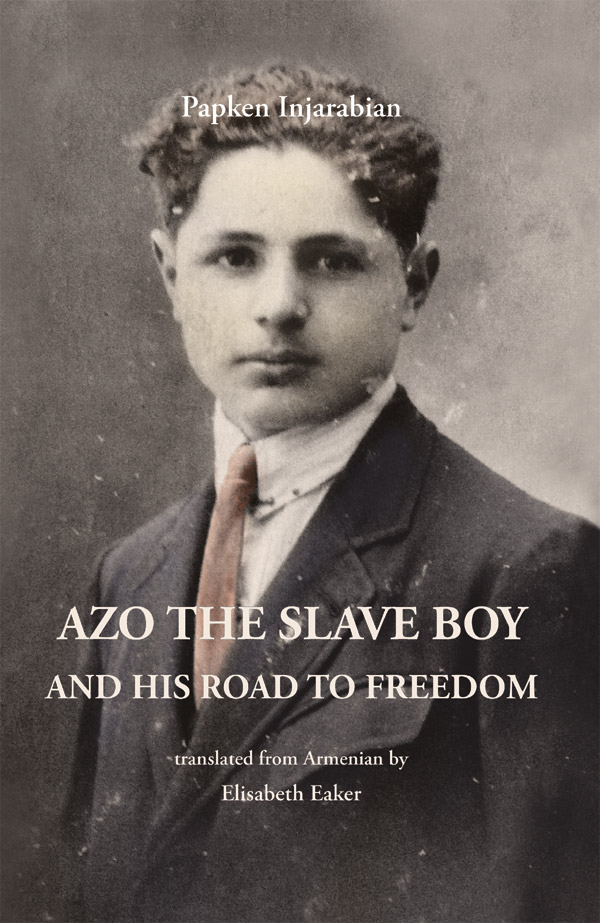
Azo the Slave Boy and his Road to Freedom
translated from French by Elisabeth Eaker
London: Gomidas Institute, 2015,
vi + 158 pages, illustrations
ISBN 978-1-909382-16-9, paperback,
Price: UK£15.00 / US$20.00
To order please contact books@gomidas.org
FROM THE INTRODUCTION BY ELISABETH EAKER:
Papken Injarabian was born in 1906 in Amasia, Turkey. He was the
youngest of five children. When Ottoman Turkey entered World War I, his
older brothers were conscripted and the family never saw them again. The
Turkish government then ordered the evacuation of Amasia and
neighboring villages, as part of the planned deportation and destruction
of Ottoman Armenians. On June 21, 1915, nine-year old Papken, his
parents and two sisters had to leave behind their beloved home. They
were forced to march for hundreds of miles across the treacherous
mountains. The heat was intense and they lacked food and water. People
died by the thousands from starvation, dehydration, and exhaustion.
Along the way, they saw corpses and evidence of the mass executions of
Armenians. During the exodus, young Papken experienced many losses. One
of his sisters was given away to Kurds, and his father was murdered.
Later, another Kurd separated Papken and the rest of his family from the
convoy, threatened to kill them, and abducted his remaining sister.
Soon after, his mother died from cholera and overwhelming sorrow. Papken
became an orphan and had to fend for himself. He was taken in by Kurds
as a slave. In order to stay alive, he had no choice but to become a
Muslim, and was renamed Azo. During his enslavement, which lasted more
than four years, he ran away many times and had nine masters. He had to
endure the cruelty of his masters and their families, starvation, and
despair. He never bathed and never slept on a mattress. One day, he
heard about an orphanage in Urfa, which rescued many young Armenians
like him. This news gave him hope and he was determined to make his way
to Urfa.